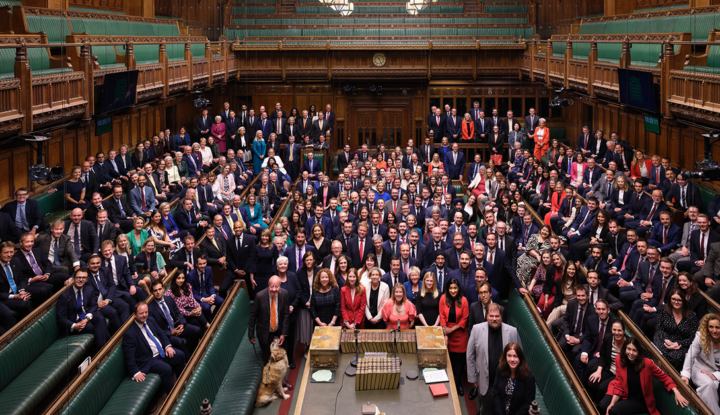Keir Starmer is not the first non-religious Prime Minister. Ramsay Macdonald, Winston Churchill, David Lloyd George, Neville Chamberlain, Clement Attlee, and James Callaghan were all atheists or agnostics. But in saying publicly that he does not believe in any gods and expressing instead a humanist conviction in ‘irreducible human dignity’ (as he put it to a recent biographer), Keir Starmer is certainly the first to be so open about this aspect of his beliefs and identity.
The start of his premiership also happens to coincide with the election of the most openly non-religious House of Commons in history.
Research published by Humanists UK has shown that 40% of MPs chose the secular affirmation last week instead of a religious oath to God during their swearing-in ceremony – a remarkable doubling of the 24% who did so after the 2019 General Election intake. This includes roughly 50% of the Cabinet. For the first time ever, the number of those affirming has come close to reflecting the beliefs of the UK population as a whole.
As Humanists UK staff totted up the totals and this dramatic shift became clear, I can’t say that I was surprised. The 40% of MPs affirming comes close to the 42% of Brits who say they don’t believe in gods (39% say they do, the rest aren’t sure). But Parliament still appears to be more religious than the population as a whole, especially given the relative youth of new MPs. The British Social Attitudes Survey records 53% of people as belonging to no religion, but in the case of those aged under 50, it’s around 60%.
It’s not just people’s own beliefs that have changed in recent decades. The negative social judgement that once was cast on the non-religious has also diminished. Although recent research on court oaths did show that religious people were more negative about people who affirmed rather than took an oath, by and large we’re lucky now to live in a country where at least most people are confident to be honest about their beliefs. In the US by contrast there are just two openly non-religious members of Congress.
We’ve known for a few decades now that in terms of practice, belief, and identity, the UK is in the top five least religious countries in the world. We now have one of the least religious national parliaments in the world, too. Will this fact just become a footnote in political history or will it have significance? Only time will tell.
The Labour Party pledged in their Manifesto to ‘modernise’ the House of Commons but it’s not yet known if this will include oaths and affirmations, or practices like parliamentary prayers, which will be increasingly out of keeping with a Parliament where at least half the MPs are not Christians. Will the increased open non-religiosity of Parliament have other consequences? On big ethical issues like assisted dying and abortion, surveys show that the non-religious are more liberal than the population as a whole. But non-religious people who have never been troubled by religion can also sometimes be less aware of the structural religious injustices that do affect others, like illegal schools or religious discrimination in public services. A more non-religious Parliament will still have to make law and policy for a diverse society. For now, at least it is more reflective at last of the society it serves.
